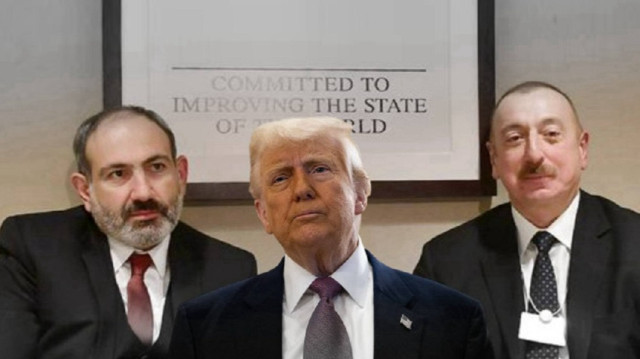Washington promises history, but the Caucasus rarely forgets the cost of signatures on fine paper.
Donald Trump has announced that, this Friday, the leaders of Azerbaijan and Armenia will sign what the White House calls an “historic” peace agreement, a phrase worn thin by diplomatic theatrics, yet always useful in Washington when America’s strategic interests are in play.
A ceremony wrapped in symbolism and U.S. leverage
The Azerbaijan-Armenia peace deal will be staged at the White House with Ilham Aliyev and Nikol Pashinyan, in a carefully choreographed sequence: separate bilateral meetings with Trump, followed by a tripartite signing at precisely 4:15 p.m. Eastern. The last time these two leaders met, in Abu Dhabi this July, the talks collapsed into polite nothingness. Now, the U.S. president presents himself as the indispensable broker.
But CBS claims the agreement contains more than warm words. A “Trump Route for International Peace and Prosperity”, TRIPP, a 43-kilometre corridor in Armenian territory, would be granted to U.S. administration. The White House won’t confirm. Washington’s silence is telling: genuine peace in the South Caucasus is secondary to securing corridors, pipelines, and influence between Russia, Iran, and Turkey.
A fragile backdrop: victory, humiliation, and constitutional rewrites
Armenia still bleeds from the loss of Nagorno-Karabakh. Three decades of de facto control ended in a 2020 war and a final rout in 2023, which sent over 100,000 Armenians fleeing. Azerbaijan, now unambiguous victor, demands a constitutional rewrite in Yerevan to erase all territorial claims, a gesture meant as humiliation as much as reconciliation.
Pashinyan, weakened at home, promises a referendum in 2027. But the word “Artsakh” still weighs heavily in Armenian hearts. This “peace” is not reconciliation; it is surrender formalised.
Trump’s self-branding as global peacemaker
Trump’s communications team is already speaking in Nobel tones. His spokeswoman, Karoline Leavitt, boasted in late July that the president had “delivered a peace or ceasefire deal every month” since his return to office in January. She listed an improbable cascade of settlements, India and Pakistan, Egypt and Ethiopia, Serbia and Kosovo — all of them fragile, many already fraying.
To Washington, the Azerbaijan-Armenia peace deal is one more trophy in a diplomatic showcase. To the region, it is an American handshake that may carry as many strings as it cuts.
A calculated “historic” moment
From closed airspaces to unusual troop redeployments, the region’s subtle signals remain uneasy. The fact that the U.S. has embedded infrastructure ambitions within the treaty suggests a peace bound to geopolitical utility rather than moral clarity. For Armenia, survival dictates compliance. For Azerbaijan, victory demands recognition. For Trump, it is theatre with real estate rights.
The ink may dry quickly; the consequences will not.



